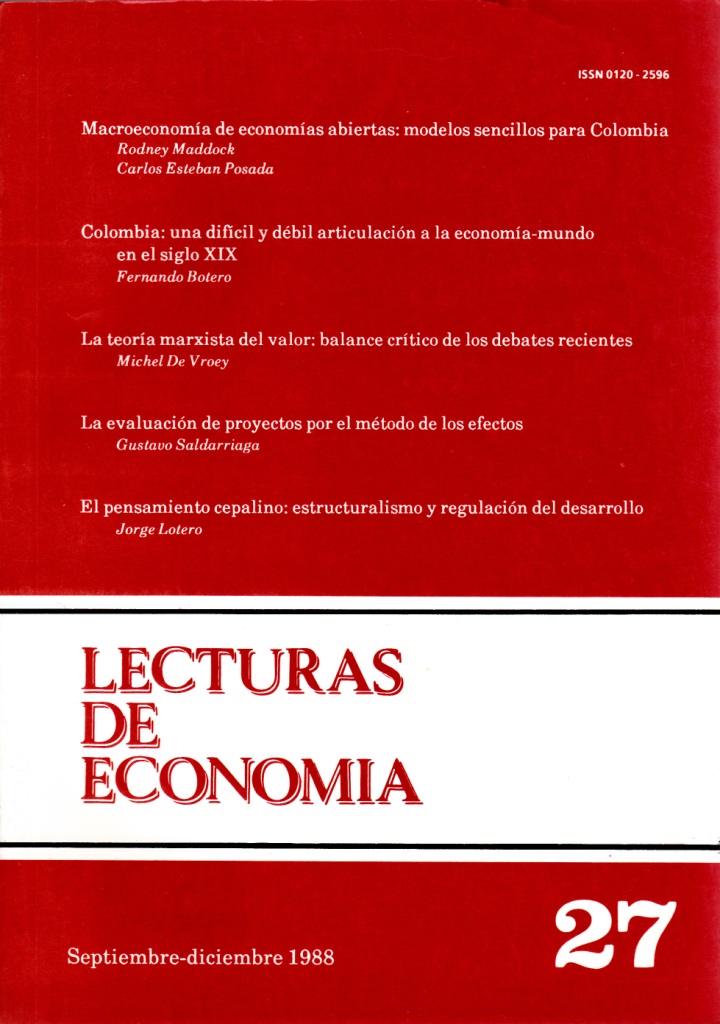Colombía: una díficil y débil articulación a la economía-mundo
DOI:
https://doi.org/10.17533/udea.le.n27a7756Abstract
- Resumen: El concepto acuñado por Fernand Braudel y Emmanuel Walerstein de Economía-mundo sirve de telón de fondo a este artículo que explora la inserción de Colombia en este sistema dominado por algunos países de Europa Occidental. El ensayo ilustra a grandes rasgos cómo la incorporación de Colombia fue lenta, difícil y sobre todo débil; al mismo tiempo no obedeció a una "asignación" fatal de la "división internacional del trabajo" ni tampoco a la evolución armónica y feliz de la asignación óptima de los recursos gracias al supuesto y omnisapiente mercado. Por el contrario, se trata de un proceso complejo e intrincado en donde a menudo se disdibujan y/o se entrecruzan los rastros.
- Abstract: The ideas developed by Fernand Braudel and Emmanuel Walerstein concerning world economy , are used as a background for this paper, that explores Colombia's introduction to this system, dominated by certain countries of western Europe.
This essay broadly illustrates how Colombia's incorporation was slow, difficult and, above al l, weak. At the same time, it did not result as a consequence of a "desire" to become part of "the international division of labor". Neither was it the outcome of a harmonic evolution of the best a\location of resources due to an assumed and all-knowing market. On the contrary we are referring to an intricate and complex process where the trails are often interweaven or badly drawn.
Downloads
Downloads
Published
How to Cite
Issue
Section
License
This page, by Universidad de Antioquia, is licensed under a Creative Commons Attribution License.
Authors who publish with this journal agree to retain copyright and grant the journal right of first publication, with the article licensed under a Creative Commons Attribution-NonCommercial-ShareAlike License allowing others to share it as long as they acknowledge its authorship and original publication in this journal.
Authors can enter into separate, additional contractual arrangements for the non-exclusive distribution of the journal's published version of the work (e.g., post it to an institutional repository or publish it in a book), provided that these arrangements be not for profit and the journal be acknowledged as the original source of publication.
Authors are permitted and encouraged to post their papers online (e.g., in institutional repositories or on their websites), as it can lead to valuable exchanges as well as greater citation of the published work.















